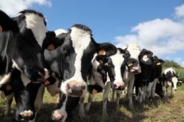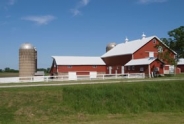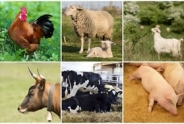Milking Procedure Review
Lindsay Ferlito, Dairy Management
North Country Regional Ag Team
With milking going relatively smoothly multiple times a day, it can be easy to forget to take a step back and review your milking protocols and procedures. Along with other animal care SOPs, review of milk procedures should take place at least annually. Sometimes this means just a quick review to make sure things are still where they need to be, but other times it means revamping and some re-training. This article will go over some things to keep in mind when reviewing your protocols as well as some basics for milking procedures.
When developing and reviewing your milking SOP, include input from your herd veterinarian, your milking staff, and apply industry best management practices. After creating your SOP, employees on all shifts need to be trained on any updates and expectations should be clearly outlined. Further, performance should be monitored to ensure the SOP is implemented and followed correctly. When evaluating milker performance, you could look at teat-end cleanliness and check milk flow rate data (trying to avoid bimodal milk flow), as well as visually observing the employees and having a verbal discussion with them to address any concerns they have.
With the proper SOP in place, the goal is to have cows milk out quickly, completely, and with low stress. As mentioned above, we are aiming to avoid bimodal milk flow, which is when the milk flow peaks and then drops down very low (or no flow), and then peaks up again (2 peaks - bimodal). Ideally, the milk should start flowing, peak, and then drop near the end (1 peak).
Industry guidelines suggest that within 2 minutes of the milking machine being attached, 50% of the milk should be collected. Cornell's Quality Milk Production Services (QMPS) says to aim for 15 pounds (3x milking) or 18 pounds (2x milking) of milk released in the first 2 minutes.
Following these guidelines will help increase milk production, reduce overall time in the parlor, and help maintain good teat and udder health.
If you have questions about troubleshooting your milking procedures, please reach out to Cornell Cooperative Extension or Cornell Quality Milk Production Services (Canton, NY; 315-379-3930).
Announcements
No announcements at this time.





